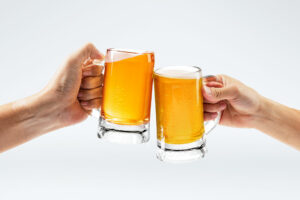TOURISM SPENDING in the Philippines is expected to recover to pre-pandemic levels this year, with premium food and beverage (F&B) experiences being identified as the leading growth opportunity, Oxford Economics said.
“This is clearly a sector that is still in recovery. Our projections suggest that international arrivals will finally recover to those 2019 levels next year, in 2026, in the Philippines,” according to James Lambert, director of economic consulting at Oxford Economics.
“In actual fact, in the Philippines, arrival spend has recovered a little bit quicker. We estimate that tourism spending levels will have surpassed 2019 levels this year, reaching about $87 billion of inbound tourism spending,” he added.
However, he said for the Philippines to position itself as a top destination within the next five years, it must invest in high-value tourism experiences.
“The goal with this is a more sustainable, higher-quality tourism sector that can attract greater levels of spending over the course of the year,” he added.
A survey conducted by Oxford Economics, in collaboration with the Asia-Pacific International Spirits and Wines Association, found that visitors to Southeast Asia are willing to pay $250 more per person per day when visiting destinations that offer premium F&B experiences.
“This extra willingness to pay exists at all different income levels. This is not just a picture of how to target the richest travelers,” he said.
In particular, 71% of the 1,800 potential Southeast Asian tourists from China, South Korea, Australia, the US, and the UK have identified the quality of F&B as more important than the availability of historical and cultural sites of interest.
Meanwhile, visitors to Southeast Asia were found to be 2.5 times more likely to choose a destination when premium F&B experiences are available.
The study however found that 78% of the tourists regard value for money as important when selecting a destination.
Further, it found that a $20 increase in price for a premium F&B experience would cause 10% of the travelers to choose a less-premium option.
To better compete, Mr. Lambert said tourism policymakers should embrace premium F&B experiences, facilitate variety in the development of F&B experiences, and ensure that policy frameworks do not incentivize behavior that compromises safety and reliability.
It also recommended working with the industry to understand how products and services can be improved and nurturing a business environment that supports competitively priced products and services. — Justine Irish D. Tabile

